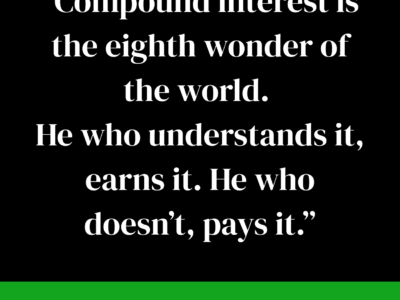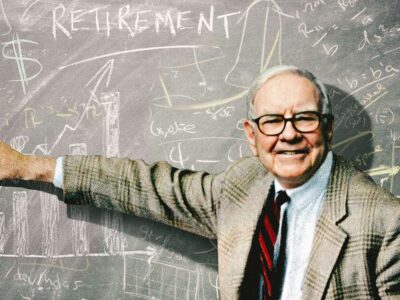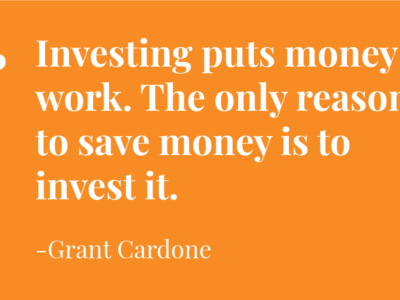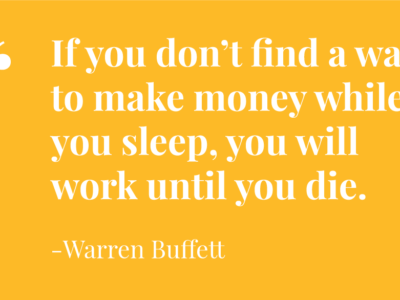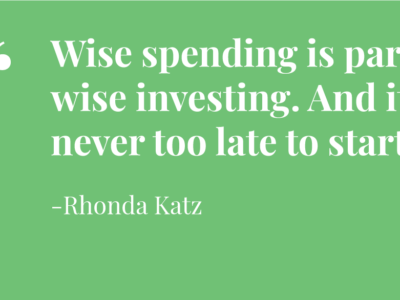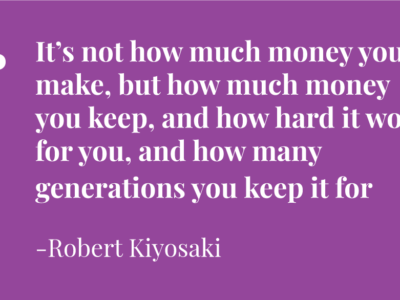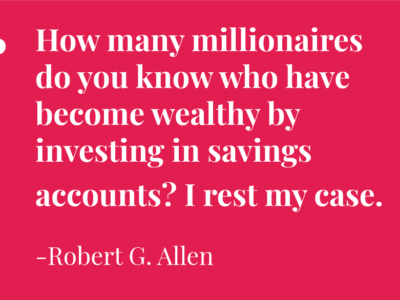Sustainable Money! One of the lessons I learned later in life was how do you make money work for you. And I wish I understood the underlying principle much earlier in life, even in grade school when I was young as I feel it’s mindset shift than anything else.
I studied hard to graduate college and have been increasing my salary year-over-year. I use it for costs to live: rent, food, bills, entertainment, then put the rest in savings or some small investments. Unfortunately, that doesn’t build safety. As I’m always dependent on a paycheck and I worry about all that could happen. It’s a lottery of chance – will I be laid off, will there be a recession, am I protected. I don’t think anyone could have predicted the pandemic and its affects on the economy.
Making money work for you is really about sustainability for a better life. And as most of us spend our entire lives getting that paycheck and saving for retirement. Our 401ks / Pensions / IRA accounts is our ticket and it’s all in stock market growth – riskier and high return in the beginning and adjusts to a more safer level as you get closer to age 65. And it’s dependent on contributions. The earlier the better, the more you put in, the more you will have when you retire at 65+ or the faster you can retire if you desire.
The mindset of deciding how we use our money and how much of our money makes back for us – that is the mindset shift of how we pay ourselves.
How I use my money and what it gives me:
- Rent – I have a place to live
- Bills: Phone, Utilities: I pay for basic necessities like electricity, gas, communication services
- Food – Restaurants, Groceries: I have nourishment that feeds my body
- Entertainment: streaming shows, movie tickets, shows, events – I get new perspectives on society and get feel someone else’s story and talent
- Shopping: I have nice things to wear or new goods, video games, etc
None of these things gives money back.
How our money could make money back for us:
If you can figure out how the money you make now from your wages can cover your costs, then you basically are financially free. That type of freedom makes it so you can do more – or live the life you want. It could be to keep doing what you’re doing because you already love it, or a chance to try something new or explore what the world has for you without the responsibilities.
So far in life, I’ve tried out these three ideas, some gives me more money back than others.
- Savings account: It’s one of the lowest forms of interest these days, and doesn’t protect you from inflation (value of your dollar decreasing over time). But it does give you something back. For example, save $1,000 for a year at 0.01% APY = 1,000.10. Terrible thats all you get for 10 cents a year, but most banks are tricking people to have a savings account with them for such little return. High-yield savings accounts like Capital One 360 Performance Savings gives me 0.40% APY. = $1004.00. That’s $4 for every $1000 you put in and big different from 10 cents – but still fairly low. Imagine if you had $100,000 dollars at 0.40% APY is $400. Still not enough to live – but hey, at least it’s some money back.
- Stock investments: A more riskier engine for making money work for you, but it swings up and down everyday. And gets substantial crashes every decade or so. But since its inception, the stock market has performed at 7% growth. Comparing an $1000 investment from a savings account, you could get $70 per year. $100,000 dollars = $7000 per year in gained interest on a good stock market year on a 7% APY. If we had a million dollars of savings, you could get $70,000 a year. Which gets us a little closer to combating your annual costs depending on how much you consume. Obviously getting to a million dollar is hard to imagine, but the constant investing you put in when you save for retirement over the lifetime of working, the goal is to get you there so you don’t have to work later in life, 65+. The philosophy of making your money work for you is applied to the people who love F.I.R.E. It’s a movement that stands for Financial Independence, Retire Early. They believe if you look at your yearly costs and save 25 times that amount and invest all of it. You can survive off a 4% return rate. Quick math: if you live off $2000/month, that’s $48,000 / year times 25. If you somehow can save 1.2 million dollars and place it all in stock investments. You can pull out 4% which is exactly your costs, $48,000. And you’ll still gain 3% growth per year on a 7% growth year on your 1.2 million which is $36,000. So simply, interest will collect on 1,236,000 million on another year of positive return. That’s the theory of F.I.R.E which many people are hoping to achieve.
Now the question is, are there other ways to make money besides savings and investments. One is real estate, but I wouldn’t only classify this as owning a house and living in it. Why? Well, we live in a world of money and cash, you use it to spend money. The house you live in , costs you money, so even if it increases in equity from the value of the home increasing – it really isn’t making you money until if gives you money back that you can use and see every year.
- Real Estate investments = something you own giving you money
- If you own a home and rent a room out to a tenant per month, that gives you some cash back. People here love to house-hack. Rent to pay off their mortgage.
- If you own a home and Airbnb it, that gives you some cash back.
In most cases, people who own a home; don’t get enough cash to offset how much they have to spend for it. There are cases where the mostly costs of owning a home are lower than the money you produce from renting, that’s when you get positive cash flow. That becomes the thinking behind having the money you spend make money for you.
What are other ways of something you own can make money for you?
Another new and trending method is the same concept as renting a house. Can you rent your car out to people, which is a peer-to-peer service. You own a car, but don’t use it. It’s nice enough that someone would want to use while you are not. So you allow someone to borrow it and make some extra money from that. There’s a service called Turo, which is the world’s largest car sharing market place. It’s another interesting money making concept beyond working for wages. If you own a car, if you no longer own money on it and rent it out, you get a monthly cash flow that’s positive. There are pros and cons to p2p car rental, but the mindset and philosophy is the same.
Businesses: Creating your own business doesn’t have to be as complex as today’s world makes it from these tech companies, apps, and start ups. If you make something that’s interesting enough for people to buy, they would give you money. And if it costs you less to make, besides your skill or talent to make it, then you’re making positive cashflow. But more so that the money and time you put it to making something, makes some money back for you.
I know this may all seem simple and a no-brainer for some or a lot of people reading this, but it’s really that concept, as rudimentary as it is, that can transform how you live everyday – which I think is a mindset shift I wish I was taught in school. The things you do, or earn, no matter what point in life you are in – will your money make some money back for you – so that someday, your life can be sustainable to keep doing what you are doing, or to have a bit more freedom to do something else with no worry about needing a paycheck for the next month of rent or mortgage, food, or any other costs you may have. All the things you decide to do with your money – does it all add back to paying yourself with the right amount of time. That’s a really interesting aspect!




